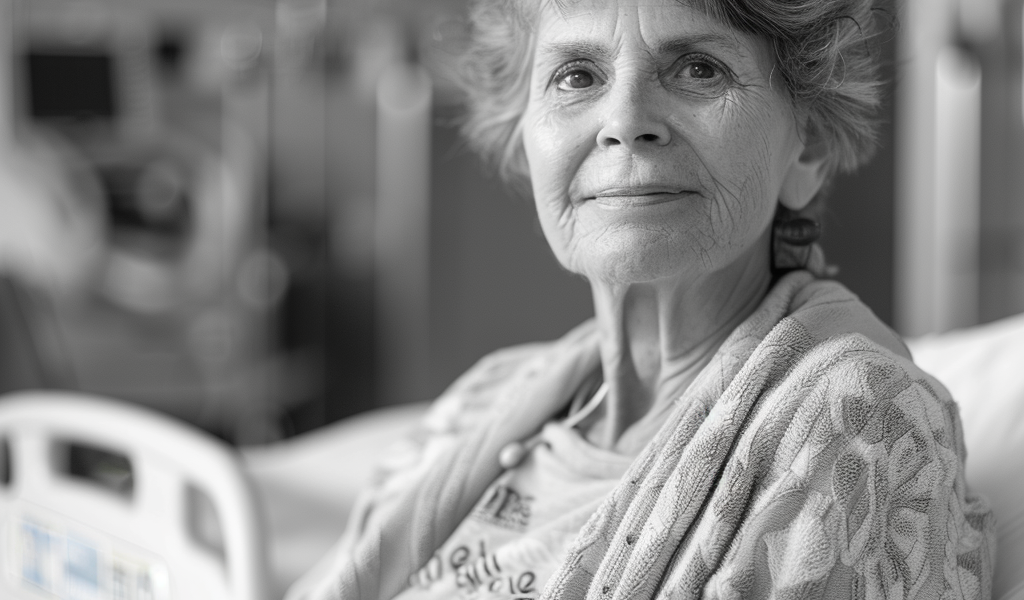Baltimore, Maryland – As September marks National Sepsis Awareness Month, a local woman’s harrowing experience sheds light on the often-overlooked condition that affects over a million Americans annually and can lead to life-threatening consequences.
Jackie Duda, a dedicated mother, wife, and former teacher, faced the brink of death in May 2021 due to septic shock. Reflecting on her near-fatal experience, she remarked, “When I closed my eyes, I didn’t think I’d see anybody again.” Duda’s journey began when she was rushed to a Hagerstown hospital after experiencing severe health complications.
Upon arrival, medical professionals diagnosed her with a perforated colon, a condition that can lead to severe infection. “I started to go into respiratory failure, so they put a ventilator down my throat,” she recounted. Duda was then airlifted to Shock Trauma in Baltimore, where she underwent emergency surgery. Surgeons removed a third of her colon, which was severely infected with E. coli, the bacteria responsible for triggering her septic shock.
Duda spent nearly a month in the hospital battling for her life. “I fought for them. I really did. I wanted to live, to get better,” she shared. Her recovery journey was long and arduous, involving the relearning of basic skills such as brushing her teeth and walking unassisted.
Despite the challenges, Duda expressed gratitude for her survival, saying, “I felt really lucky and not sure why I got so lucky because a lot of people die from what I had.” The severity of septic shock is underscored by its mortality rate, which can range from 30 to 40% if not treated promptly.
Sepsis is often described as a “sneaky” condition due to its rapid onset and lethal potential. Duda, now a passionate advocate for sepsis awareness, aims to educate others about the warning signs and the importance of timely medical intervention. “Sepsis is sneaky fast and lethal if you don’t get to it in time, and I just want to help people survive,” she emphasized.
Dr. Cheyenne Falat, a specialist at the University of Maryland Medical Center, elaborated on the nature of sepsis, explaining that it results from the body’s extreme response to an infection. She highlighted key symptoms to watch for, including fever, elevated heart rates, difficulty breathing, and clammy hands. Recognizing these warning signs is crucial for early intervention and treatment.
If left untreated, sepsis can lead to severe complications such as organ failure, shock, and ultimately, death. Dr. Falat stressed the importance of managing chronic health conditions to mitigate the risk of developing sepsis.
As Duda continues her advocacy efforts, she hopes to raise awareness about sepsis and its impact on individuals and families. Her story serves as a poignant reminder of the importance of vigilance and prompt medical care in the face of potential health crises.
Throughout September, various organizations and health advocates will engage in campaigns to educate the public about sepsis, its symptoms, and the critical need for timely treatment. Duda’s experience exemplifies the resilience of the human spirit and the vital importance of awareness in saving lives.
In addition to personal narratives, health officials encourage communities to participate in educational programs and workshops that focus on infection prevention and early recognition of sepsis symptoms. By fostering a better understanding of this condition, advocates hope to reduce the number of individuals affected by sepsis each year.
Sepsis awareness is not only essential for individuals at risk but also for healthcare providers who play a crucial role in diagnosing and treating the condition. Training and resources are vital in equipping medical professionals with the knowledge needed to recognize and respond to sepsis effectively.
As the month of September progresses, the focus on sepsis awareness will continue to grow, with hopes of inspiring more individuals to seek medical attention promptly and advocate for their health and the health of their loved ones. Duda’s journey is a testament to the importance of awareness, education, and the relentless fight against sepsis.





